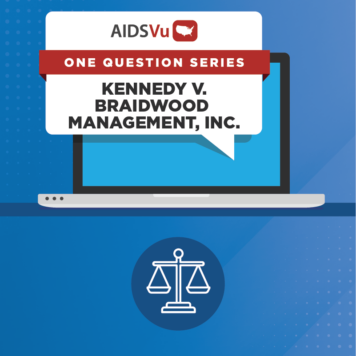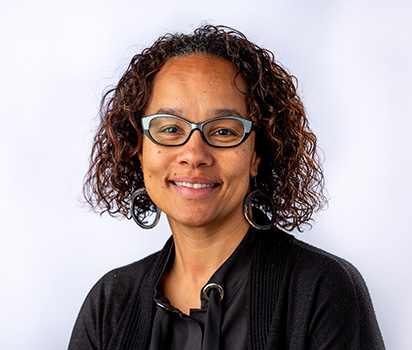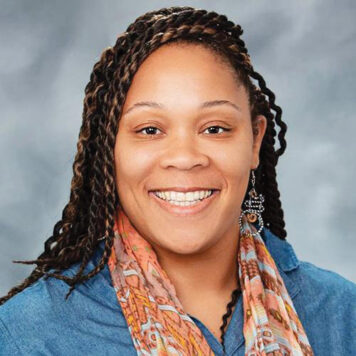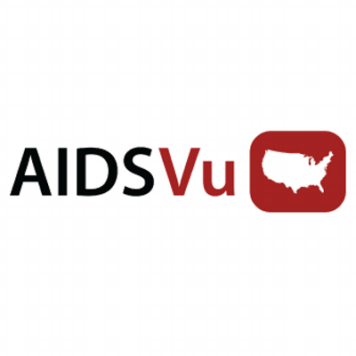Richard Hutchinson Jr. is the YMSM Program Specialist at NAESM and co-founder of the He is Valuable Project, a social movement that empowers Black Queer Men to mobilize around the HIV epidemic and other social justice/health issues.
Q: You have been an advocate in the HIV/AIDS community since an early age. What inspired you to commit your life to this cause?
As a 23-year old sophomore at Rutgers University, five or six of my close friends let me know they were HIV positive within a few weeks. Even though they had known for a while, the stigma surrounding HIV made them feel like they couldn’t tell me. After graduating, I decided to look into social service work around HIV. I began attending a focus group for Young Gay Black Men and Young Gay Men of Color and talking about my own experiences – not being comfortable with myself, of being Black, and of dealing with racism. I started working as a community outreach worker for that organization and dedicated myself to helping to reduce the stigma of HIV for Young Gay Black Men and Men of Color. It is important that my community has this conversation, and that we share this conversation with people outside of our community so everyone knows how HIV impacts us.
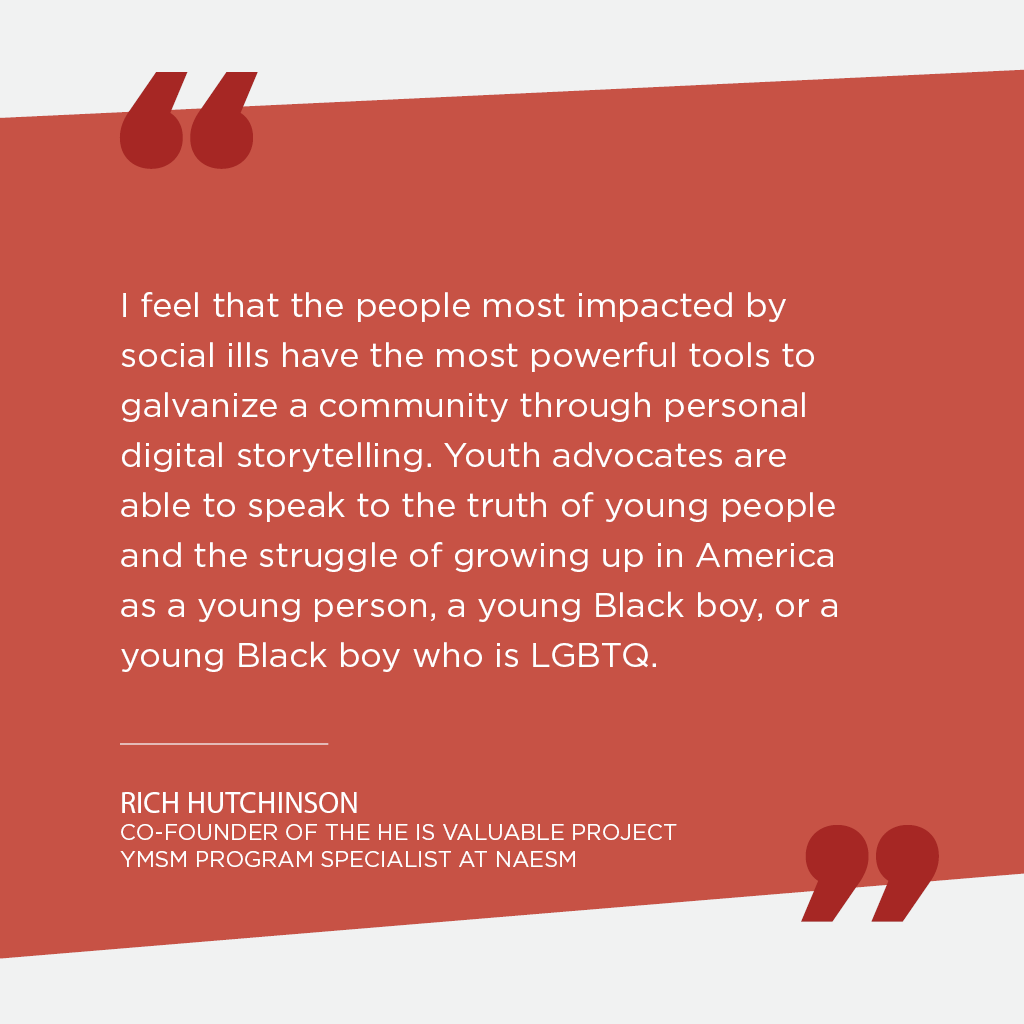
Q: In 2015, Greater Than AIDS appointed you as a youth ambassador. With new HIV diagnoses on the rise among Young Gay and Bisexual Men, what tools are youth advocates using to help reverse this trend?
When I started working as a community outreach worker for Young Gay and Bisexual Men of Color, I started gaining mentors who connected me with many other youth programs and conference opportunities. I was offered the role of youth ambassador with Greater Than AIDS in a program called “Speak Out HIV: 25 Young Gay and Bisexual Men Under the Age of 25.” We participated in a national digital storytelling conference to learn how to tell our own stories in order to raise awareness and debunk stigma around HIV in our communities.
I feel that the people most impacted by social ills have the most powerful tools to galvanize a community through personal digital storytelling. Youth advocates are able to speak to the truth of young people and the struggle of growing up in America as a young person, a young Black boy, or a young Black boy who is LGBTQ. I can naturally connect with my community and educate, empower, and impart knowledge because this is my lived experience. It is important to have those who are members of these communities speak to issues that are vital to these communities. Who better knows young people than other young people? We have to elevate young people’s voices and put them in positions of power with meaningful opportunities for involvement in order to truly make an impact.
Youth are also equipped to use digital technology such as social media and social marketing to get their personal stories about HIV out into the world. We can fine-tune our messages and use Facebook, Instagram, Twitter, and Snapchat to send those messages out to other young people and reach them where they live.
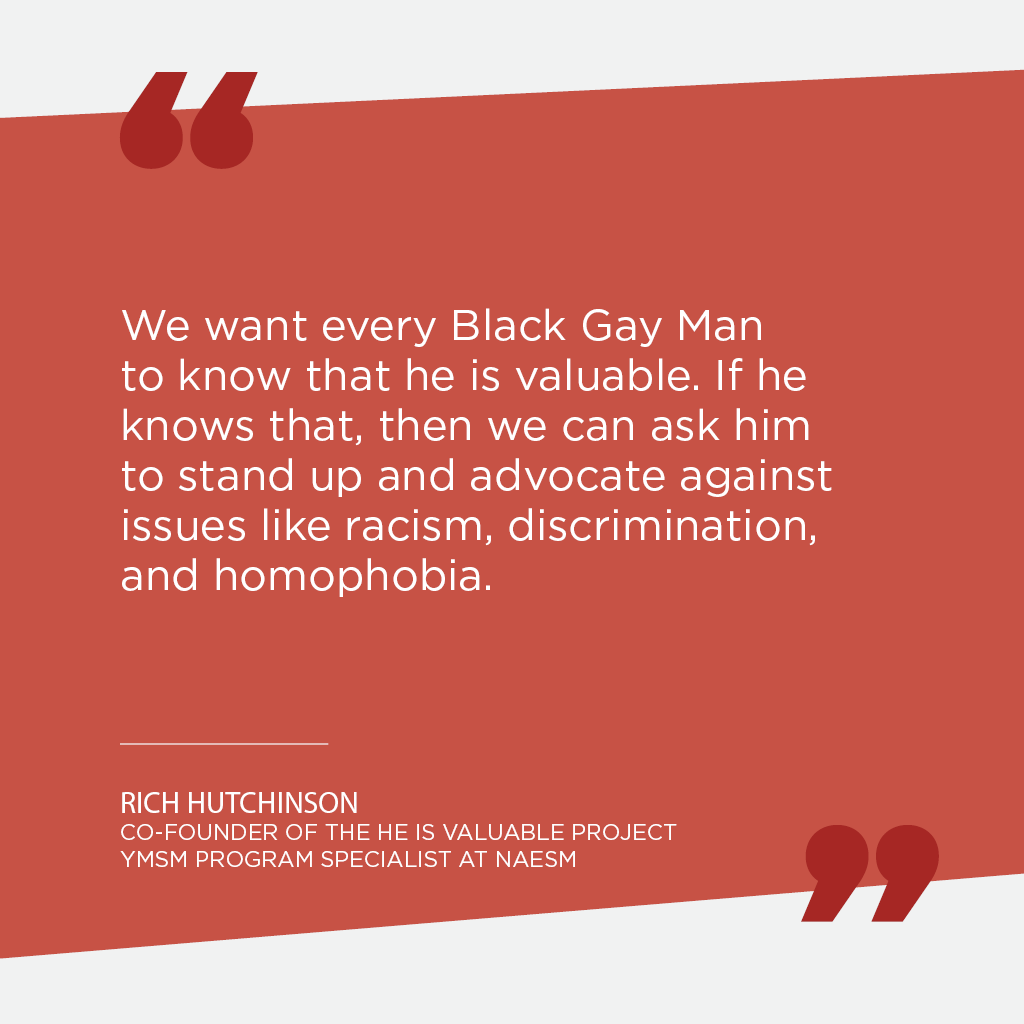 Q: You co-founded the “He is Valuable” Project which focuses on reducing the stigma of HIV for Black Queer Men. Can you tell us more about the Project, and what you hope to accomplish? How has it been received?
Q: You co-founded the “He is Valuable” Project which focuses on reducing the stigma of HIV for Black Queer Men. Can you tell us more about the Project, and what you hope to accomplish? How has it been received?
At the “He is Valuable” Project we envision creating a social movement that reinforces the value of Black Gay Men both to themselves and to their communities. The current narrative around Black Gay Men with HIV is one of blame and victimization, limiting us to our sexual behavior and emphasizing the fact that we may have condomless sex or engage in other risky behavior. This limits the narrative about us. In order to get Black Gay Men to galvanize and mobilize around the issue of HIV, we first have to re-instill their own sense of value in their lives. That’s why we want every Black Gay Man to know that he is valuable. If he knows that, then we can ask him to stand up and advocate against issues like racism, discrimination, and homophobia. We must develop programs and initiatives that speak to the truth of intersectionality for Black Queer Men. He Is Valuable is about addressing the needs of Black Queer holistically in order to improve health outcomes and quality of life for ourselves and our community.
We seek to celebrate the value of Black Queer Men through innovative social marketing, such as pictures and videos on different social sites, and other health communication strategies that speak to our communities directly. We have moved from a strictly online-only communication strategy to one of direct community engagement. Our goal is to get beyond the daunting statistics for Black Gay Men and speak to the intersections of our Blackness and our Queerness.
The concept for the project formed on June 19th, 2015 when I found out I was HIV positive. I celebrate June 19th as my “Seroversary,” a concept developed by ThriveSS, an Atlanta-based organization for People Living With HIV (PLWHA) by celebrating the anniversary of your HIV diagnosis, you are asserting that you can continue to thrive with HIV, and it shouldn’t stand in the way of you loving someone, or feeling sexy, or living a life as a normal human.
Once I found out I was HIV positive, my partner at the time Kendall Boone and I started “He is Valuable” and used my story as the jumping-off point. We witness the daunting reality of stigma related to HIV amongst Black Gay Men in our community so we wanted to do something to combat that. That’s why we transformed the name HIV into He Is Valuable. Since then, “He is Valuable” has become a household name in our community that people use to empower Black Gay Men. People also use #HeIsValuable to share selfies and stories about their accomplishments on social media. It is such a beautiful thing to see Black Gay Men celebrating themselves and empowering themselves to have conversations about HIV and the intersecting issues. We are finally able to talk openly about things like PrEP, viral suppression, how to find a good doctor, where to find testing, how to deal with symptoms and much needed social support to be healthy as possible regardless of HIV status.
Q: What are some of the issues you find Black Queer Men want to learn about from your organization?
One of the most important topics Black Queer Men want to talk with us about is PrEP access and education. About four to five Black Gay Men a month are being linked to care through He is Valuable, and one of the biggest reasons that so few Black Gay Men are on PrEP is a lack of education and knowledge. A lot of HIV positive Black Gay Men also want to know how to reduce stigma around introducing PrEP into their conversations with other men.
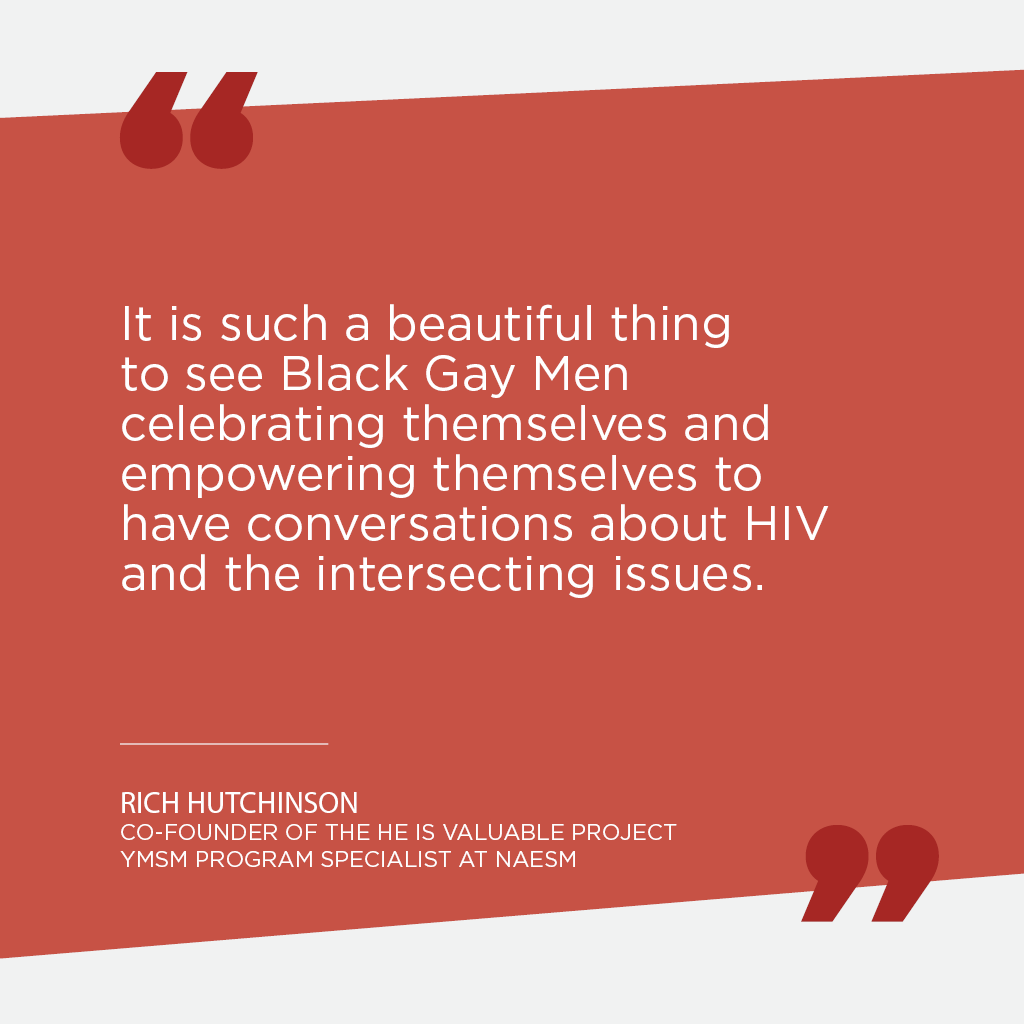 To that end, we have a program called Chit, Chat and Chew, which is a BYOB style, discussion-based community event for Black Gay Men, run by Black Gay Men of the He Is Valuable Project. We just sit down and talk about things, whether it’s relationships, politics, or our perspectives as Black Queer Men. HIV never leads the conversation, but it is always an open space where it can become part of the conversation.
To that end, we have a program called Chit, Chat and Chew, which is a BYOB style, discussion-based community event for Black Gay Men, run by Black Gay Men of the He Is Valuable Project. We just sit down and talk about things, whether it’s relationships, politics, or our perspectives as Black Queer Men. HIV never leads the conversation, but it is always an open space where it can become part of the conversation.
We also had a big community engagement project recently called “Random Kickback” in Piedmont Park in Atlanta, where we gathered together over 100 Black Gay Men to socialize, have a good time, and build a community. We were able to collect data at that event about the issues Black Gay Men deal with, and what sorts of services and resources they need in Atlanta. We plan to take that information to shape our activities going forward.
Q: National HIV Testing Day is on June 27. What is your message for people reading this blog?
The theme for this year is “Doing It My Way, Testing for HIV.” It’s important that we educate ourselves about these issues because all of us have an individual role to play in reducing HIV stigma. Even though we may not all be directly impacted by HIV, we’ve all been impacted by discrimination, homophobia, transphobia, or racism. We all have a role to play and part of our role is to know our individual status. I want to encourage people to get tested and to understand your life is not going to end if you are diagnosed with HIV. Know your status today, educate someone, connect someone in your life with services, and support them. That social support means everything and can save so many lives!

